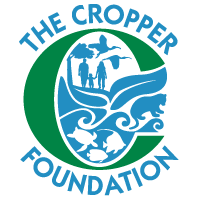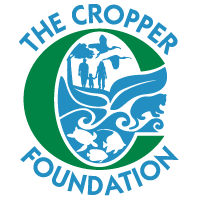Human Well-Being is impacted by a multitude of drivers that the Foundation explores through its work. These drivers influence individual themes that may form the basis of projects as the need arises, or a theme(s) can be addressed within the design and implementation of projects under the core programme areas.
Thematic Areas
Natural Capital
Natural Capital is the asset base for environmental services that has unfortunately often been regarded as a public good, or an asset to be exploited for economic gain, without a true understanding of the inherent costs and benefits that such assets provide to humans. A natural capital approach to decision making is one that seeks to, in some part, to better understand the tradeoffs between the traditional conversion of these natural assets to market assets v.s. The benefits that these assets provide in terms of services.
The Foundation has recently been admitted into the Natural Capital Coalition, a global multi stakeholder open source platform to support the development of methods for natural capital valuation in business.
In 2019, TCF aims to design and launch a Natural Capital for Business Lab, to help stimulate the business case for sustainability in Trinidad and Tobago.
Data for Development
The Caribbean does not have a good track-record on data-driven decision making. However, just the curation and production of data is not necessarily enough – the capacity of decision makers and influencers to effectively utilise data is also critical to understand in the regional context. The Foundation therefore is interested in looking at the data equation from both sides: what are the types of data that we need to collect to ensure that the realities of all groups are represented, when we measure development; and how best can this data be represented and used by the decision-makers and influencers around the Region.
The Foundation has partnered with the International Institute for Sustainable Development in the development of a Community Indicator System for Trinidad and Tobago, under IISD’s Data for Local SDG Action programme that aims to “localise” the SDGs, turning abstract global targets into actionable local goals.
Education for Sustainable Development
The Foundation has been a leader in the field of ESD since 2005. It’s efforts in education are mainly around: The disseminating of results of field work and policy analysis undertaken by the Foundation and collaborators by creating and producing learning materials; Paying special attention to the needs of the formal education system regarding the effective integration of sustainable development into existing curricula; Offering learning opportunities to interested individuals and groups within civic society; Contributing to public discourse and discussion of issues of sustainable development; Advising on the development of national and regional policies and programmes that relate to education for sustainable development through focused meetings with relevant decision-makers. Below are examples of material produced and interventions made by TCF in ESD.
Civil Society Leadership
A strong, collaborative and independent civil society is a critical factor in ensuring sustainable development. Civil Society Organisations play several roles in development: implementers of programmes and projects across varying scales; advocating for the groups with the least-heard voices; and a check and balance to State and private sector. All these roles, and more, are essential to a well-functioning country and Region that is seeking to ensure that its development works for everyone, and not just a privileged few.
The Foundation consistently lends its voice to civil society’s monitoring of good governance. Since 2010, TCF has served as a member of the tripartite Steering Committee of the Trinidad and Tobago Extractive Industries Transparency Initiative (TTEITI), a global Standard to promote open and accountable management of natural resources. TCF has been one of the leading voices to ensure effective civil society participation in our management of extractive resources. TCF has also been at the forefront of recent national civil society initiatives to advocate for improved governance and consultation, including advocacy around the Non-Profits Organisations Act and the Freedom of Information Act amendments.
Sustainability Financing
Achieving Sustainable Development is a complex process that crosses physical and temporal scales, and that requires innovative and consistent funding in order to achieve its goals. Civil Society, as well as the State, must better understand and leverage these new mechanisms such as green bonds, impact investment, payments for ecosystem services, and debt for nature.
Such paradigm shifts are still slow to emerge in Trinidad and Tobago, but TCF aims to catalyse such leaps through a combination of its work in Natural Capital and the planned Natural Capital for Business Lab. In its work in ProEcoServ, TCF helped pilot some initial methodologies for Community Payments for Ecosystem Services and Carbon Accounting, which will serve as part of the jumping off points for future work.

